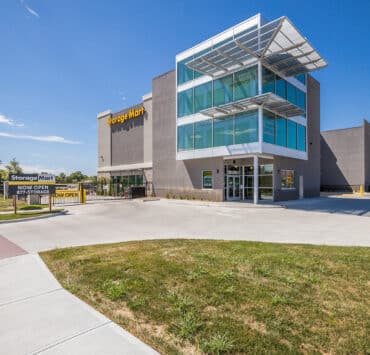|
Getting your Trinity Audio player ready...
|
The legal cannabis industry has grown rapidly over the past few years with few signs of slowing down. NASDAQ expects the market to expand several times from its current size to be worth at least $53 billion by 2026. Total international legal marijuana sales are projected to grow over $130 billion by 2030. And those figures are likely to increase as more US states legalize cannabis and more consumers buy cannabis products.
As a collaborative and hands-on leader at Curaleaf, George Schidlovsky is a strategic, pragmatic, and results-oriented senior executive, who effectively balances big picture perspectives with tactical operational and strategic investments.
Schidlovsky, the product of a family deeply roots in science and healthcare, not only brings an operational and financial background to his role as vice president of capital projects but also a passion for the power of cannabis.

“I see the significant benefits cannabis has for medical patients and for the wider over twenty-one-year-old adult use customer base,” he says. “Cannabis has been a suppressed plant for many years and now it’s being recognized for all its incredible properties. It helps people get off opioids, reduce reliance on more addictive prescription drugs. We’re developing a plant that produces medicine and gives people improvements in their quality of life.”
That passion has fueled his work at the company since he came onboard six years ago. At first, navigating the complexities of an industry that was still in its infancy was a challenge, he admits.
“One of the biggest challenges was education,” he says. “It was bridging that gap between the stigma cannabis had to it being a widely accepted medicine for patients and adults.”
“I see the significant benefits cannabis has for medical patients and for the wider over twenty-one-year-old adult use customer base.”
George Schidlovsky
Finding good staff was also a challenge.
“It was a new industry. It’s not like you hire an accountant that can do a balance sheet for you. These were folks who had to learn how to show up for work on time, be part of teams, be quick learners, have positive ‘can do’ attitudes, learn basic agricultural skills, keep accurate data, provide customer service and compassionate patient care. We had to train staff.”
He navigated those issues with a willingness to invest in employees and their development and having good reference material to support the company’s education efforts. Another driver of success was his efforts to foster collaboration among his team. He maintained an infectious can-do attitude that inspired his team members to buy into the shareholder vision.
Today, the company is reaping the benefits. In the past three years, it has invested more than $300 million into a pipeline of facilities, constantly evolving its designs to optimize its expansion goals. More recently, some of those funds were used for three indoor cultivation centers in New York, Pennsylvania, and Florida slated for completion this year. Schidlovsky says they are among the most technologically advanced facilities on the market.
They feature processing labs that utilize the latest extraction and automation technology in order to reduce the cost of production and downtimes. Additionally, the Curaleaf team along with Steve Kinz, senior director of engineering, has been dedicated to implementing environmentally conscious facility designs.
“For example, our irrigation systems utilize variable frequency drives to minimize operating power of central pumping systems. In addition, this system utilizes soil moisture sensors, infrared leaf temperature, and photosynthetic active radiation sensors to optimize environmental system operation”, says Kinz.
“It was a new industry. It’s not like you hire an accountant that can do a balance sheet for you. These were folks who had to learn how to show up for work on time, be part of teams, be quick learners, have positive ‘can do’ attitudes, learn basic agricultural skills keep accurate data, provide customer service and compassionate patient care. We had to train staff.”
George Schidlovsky
On the retail front, Schidlovsky and the project management teams are working very closely with Curaleaf real estate, retail, marketing, security, compliance, IT, and legal teams to continuously evolve the customer experience with other forms of technology as well.
“Customers still have to come in [to our locations], so we want to elevate the customer experience to make that journey as pleasurable and repeatable as possible.”
When Schidlovsky looks to the future of the industry, he says its in store for a lot of expansion, but it needs less expensive capital, lower operating costs, and more support for businesses faced with a daunting regulatory landscape not only at the state level, but most importantly the federal level.
“Cannabis is still federally illegal. States have started to provide markets for it, but the challenge is this federal regulatory landscape that must move forward in a more industry friendly fashion,” he says.
That’s why industry leaders have created industry groups to lobby the federal government to, for example, pass the SAFE Banking Act, which “prohibits a federal banking regulator from penalizing a depository institution for providing banking services to a legitimate cannabis-related business,” according to the act.
“Enacting the SAFE Banking Act would facilitate and provide normal and cheaper banking services for all cannabis participants,” he says. “It would help nurture entrepreneurship, diversity, culture, employment and generate tax revenue for the communities, state and federal coffers to be reinvested in projects and industries that are rooted in good.
Bench Dogs is a custom display, fixture, and commercial case goods manufacturer based in Denver, Pennsylvania, with extensive woodworking capacity and high proficiency in sourcing and integrating metal, plastic, composite, and other mixed materials. With over 25 years of experience, offerings include high-quality 3D design and renderings; project estimation, planning, and management; detailed engineering; space planning and consultative solution development; technology and advanced lighting integration solutions; coordination with architectural elements and shop drawings; and installation capabilities. Bench Dogs holds AWI QCP premium and custom certifications. For inquiries, please contact Todd Shertzer, Vice President of Sales, at tshertzer@benchdogs.com or visit benchdogs.com.


